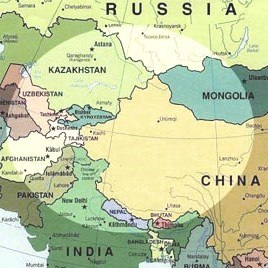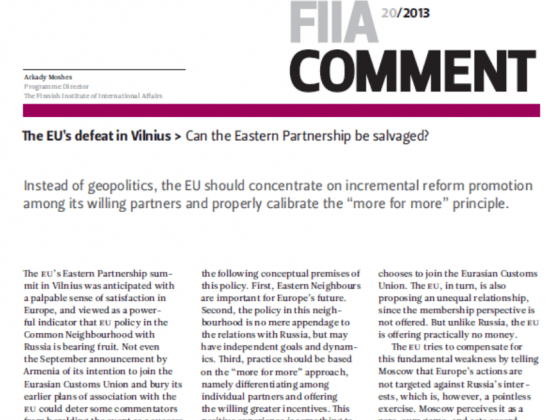The NATO-centrism in Russian foreign policy can perhaps best be seen through the lens of Afghanistan. Russia has no clear strategy toward this country once NATO troops withdraw. Its only policy appears to be the prevention of any growing role of the United States in adjacent countries. This outlook applies to Central Asia, which Russia considers to be part of its sphere of influence. However, the ambitions and role of China factor into this region, though Russia prefers to sidestep this topic.
These themes were focused on recently at the Barcelona Centre for International Studies (CIDOB) think tank in Barcelona, which published a report and held a high level international conference on the “Future Scenarios for Afghanistan and Pakistan” There was a large focus on Russia's perspectives on Afghanistan.
A striking takeaway from the deliberations is that the organizations that Moscow holds very high in its policy agenda – the Shanghai Cooperation Organization (SCO) and the Collective Security Treaty Organization (CSTO) – were only mentioned symbolically among Russia's policy toolkits.
Moreover, it was also striking that BRICS (Brazil, Russia, India, China, and South Africa) stood completely out of operational context – particularly surprising since three of its founding members – Russia, India, and China – have vested interests in the long-term security in Afghanistan.
The CIDOB report was based on a series of interviews conducted by Roberto Toscano and Carmen Claudin with Russian foreign policy experts in the summer of 2013.
It specifically mentions that "scant reference was made to China in the course of discussions." They noted that Russia tries to dispel any possible hints of a Russian-Chinese rivalry in Central Asia and Afghanistan. This must be a Russian version of political correctness. For many experts, competition between Moscow and Beijing over spheres of influence is taking place everywhere in the post-Soviet space.
As PONARS Eurasia member Ekaterina Stepanova wrote in a recent CIDOB working paper, Russia prefers developing bilateral ties with its client states Kyrgyzstan and Tajikistan rather than engage in multilateral diplomacy. Of course, there are some informal groupings such as the "Dushanbe Quartet" – Afghanistan, Pakistan, Russia and Tajikistan – but their practical role remains obscure.
Apart from missing institutional strategies, there is one more omission in Russia's Afghanistan policy, and this is development assistance – a concept that Russia has officially adopted yet uses only sporadically. Russia is neither willing to engage in Afghanistan militarily, as the Americans did, nor able to come up with an agenda for democratic consolidation, as the EU apparently prefers to do.
Against this backdrop, therefore, development assistance can be the most viable tool for Russia's soft power in this volatile region. Russia's 2014 chairmanship of the G8 gives Moscow a chance to demonstrate its leadership in Afghanistan and in the region, yet this chance can be missed should Russia prefer to focus on mote and highly confrontational issues like Ukraine.











